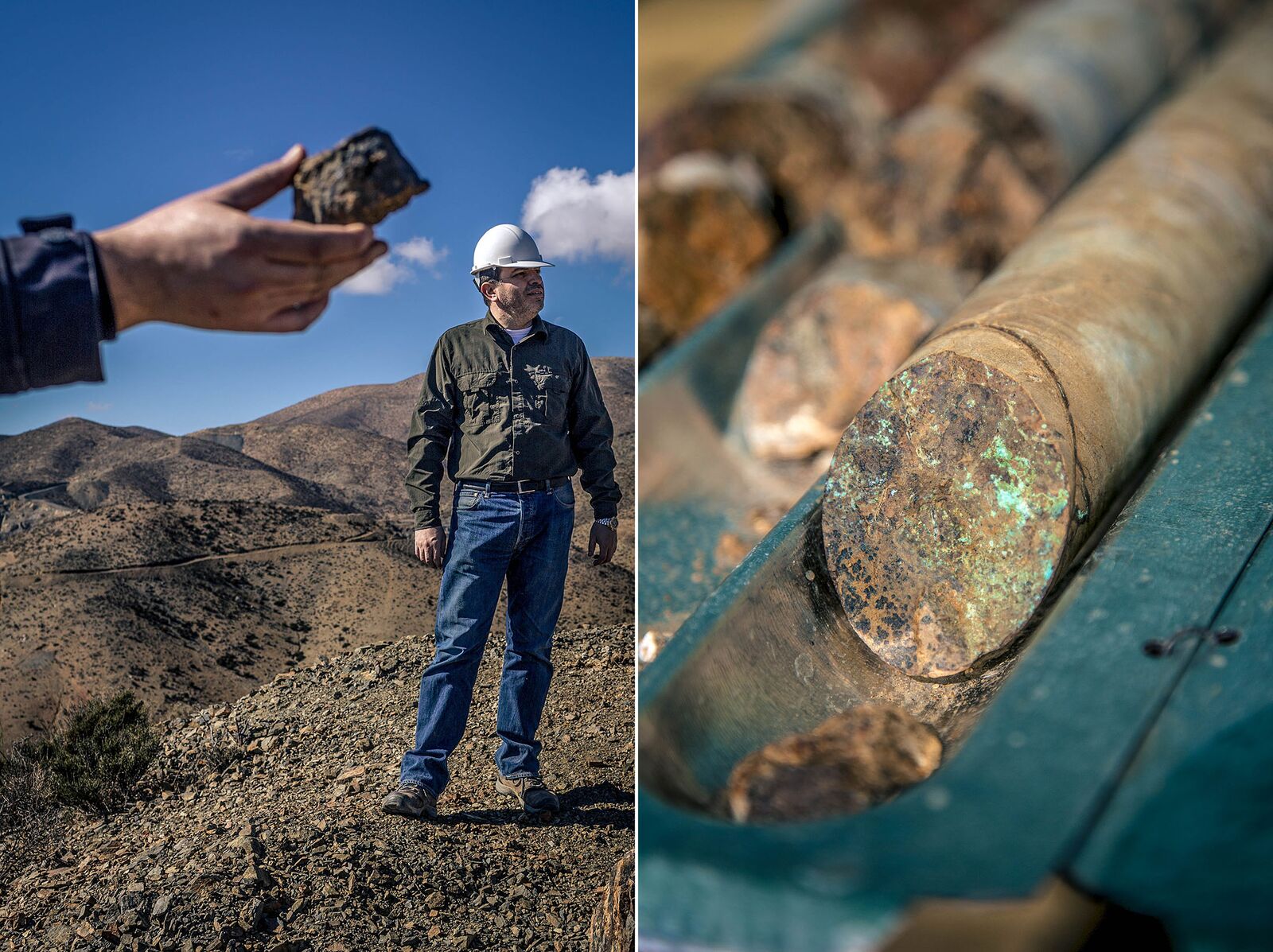Lithium ion batteries like those found in electric vehicles have become dramatically cheaper over the past 10 years. But rising demand for cobalt, as well as supply shocks from the Democratic Republic of Congo’s dominant position, threaten this progress. Cobalt prices have doubled since 2016 as a result.

Cobalt samples in Chile
However, we’re now seeing industry respond in two ways. First, mining interests are expanding beyond Congo to address the supply shortage and also diversify the countries holding jurisdiction over the largest deposits. Bloomberg reports that Chile has emerged as a potential site of some rich cobalt deposits, based on some historical research that country’s officials recently did:
Renewed interest in La Cobaltera [Chile] began to emerge last year after Chilean authorities discovered records long buried in the archives of the national geological agency. They showed more than 7 million tons of cobalt ore was mined in the country between 1844 and 1941. The mineral was extracted mainly by German immigrants, who sent it to Europe presumably to manufacture military equipment.
If this discovery holds up, it could provide an important supply source to break Congo’s monopoly, with its human rights and governance concerns.
Second, and more exciting, battery engineers are developing products that require much less cobalt. Utility Dive discussed this trend at Tesla:
In the company’s first quarter 2018 earnings update, Tesla CEO Elon Musk said the company had moved to higher density batteries while reducing the cobalt content of its battery packs. And in June, Musk told shareholders his company would continue to push battery costs down, breaking through the $100/kWh barrier for li-ion cells later this year.
Not only would less cobalt in batteries be a good thing for economic and environmental reasons, it also means prices can continue to decrease. And lower prices mean lower-income car buyers will be able to afford more and better electric vehicles, thereby reducing greenhouse gas emissions from transportation.
These two innovations on cobalt therefore represent promising trends that hopefully will continue for battery production, securing the supply chain for this critical clean technology.
Last week I blogged about how electric vehicles (and consumer electronics) run on batteries with cobalt, too-often mined with child labor in the Democratic Republic of Congo. Congo is the world’s biggest producer of cobalt, with more than half of global supplies. And cobalt prices have skyrocketed recently with the growth of EVs.
But reports by Amnesty International point to the human rights risks. The group says that approximately one-fifth of Congo’s cobalt production is mined by hand by “informal miners,” including children, in dangerous conditions. Amnesty recently ranked 29 companies on how well they were tracking their cobalt sources since a January 2016 report spotlighted the issue. Reuters covered the results:
“Apple became the first company to publish the names of its cobalt suppliers … but other electronics brands have made alarmingly little progress,” the statement said.
Most cobalt is produced as a by-product of copper or nickel mining, but artisanal miners in southern Congo exploit deposits near the surface that are rich in cobalt.
The biggest buyer of ore from small-scale miners was Congo Dongfang Mining International, a wholly owned subsidiary of Chinese mineral giant Zhejiang Huayou Cobalt Ltd, Amnesty found in its report last year.
Since then, Huayou Cobalt “has taken a number of steps” in line with international standards but “gaps in information remain”, Amnesty said.
The group was particularly critical of Microsoft, which was among 26 companies that does not disclose their suppliers’ records on this issue, as well as Renault and Daimler among the automakers (BMW had made the most improvements). Microsoft responded to the criticism, arguing that it’s doing more than the report indicates to clean up and disclose its supply chain.
The Amnesty report shows the value of public pressure on this issue. While a global governance framework to ensure a stable and just supply of battery materials will likely be needed, it’s encouraging to know that old fashioned public pressure can help bring progress, too.


